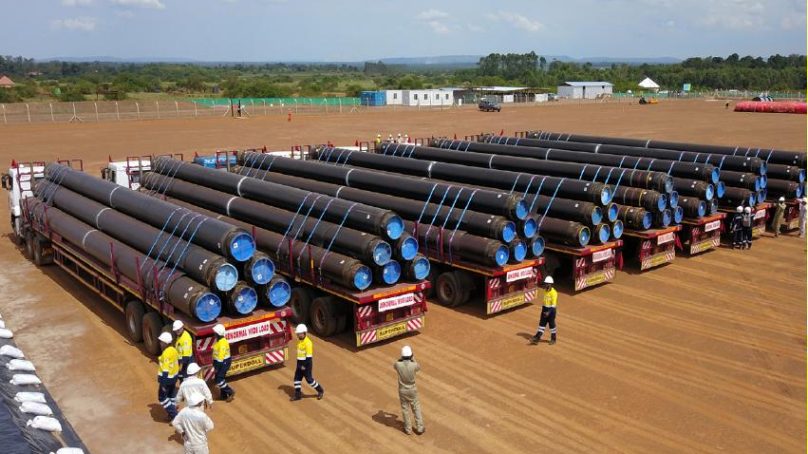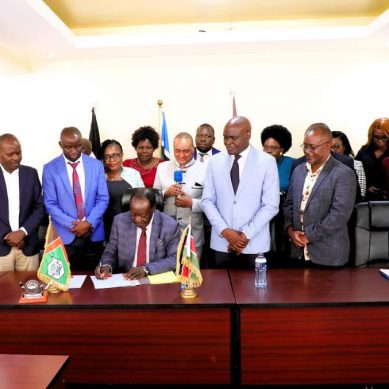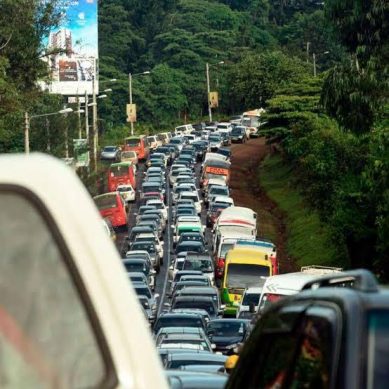
Uganda discovered over two billion barrels of oil, which will be transported by the East African Crude Oil Pipeline (EACOP) a 1,443km pipeline to the port of Tanga in Tanzania to be processed and sold to the world markets.
The EACOP starts in Kabaale, Hoima District and traverses 296 kilometres in Uganda through 10 districts: Kikuube, Hoima, Kakumiro, Kyankwazi, Mubende, Gomba, Sembabule, Lwengo, Rakai and Kyotera) affecting 25 sub-counties and 171 villages.by the East African Crude Oil Pipeline (EACOP) – a 1,443 kilometres pipeline to the port of Tanga in Tanzania to be processed and sold to the world markets.
The oil and gas resource belongs to all Ugandans and not just private companies as it holds a very big potential for the country’s development with an estimate of $2 billion (Ush4.2 trillion) expected annually for 25 years and this could finally enable Uganda to reduce its dependency on foreign aid.
Many communities envisioned a future of transformed livelihoods, they hoped oil revenues would fund better infrastructure like hospitals, schools, roads and create jobs especially for the youth who make up the majority of the population which now seems to be the contrary.
Uganda should learn from a country like Botswana, which was the third poorest country in the world but now has the highest rate of economic growth in the world and is the most stable in Africa because all the money got from the country’s diamond mining was invested in the country to fund different sectors while preserving the natural environment.
Unfortunately, Uganda appears to be following the path of Nigeria despite the fact that the country earned over $6 billion from oil, there was widespread corruption, environmental destruction, broken promises and weakened many sectors like agriculture, tourism among others which left the citizens poorer and more vulnerable than before.
As predicted by NAPE in 2019, oil would become the centre of national attention while important sectors like agriculture and tourism would be neglected.
Currently, since the start of oil activities communities have started reaping the curse of oil and gas activities where their livelihoods have been compromised and they are being displaced without clear livelihood assessments plans, the environment is being degraded among others. The following are some of the important questions that remain unanswered;
• What will happen after the closure of the 20-25-year oil window?
• Where is the decommissioning plan of the oil infrastructures?
• What will be the ecological footprint?
• How much will Uganda have invested in the oil mining and what will it have truly gained?
• Has someone carried out the cost-benefit analysis on the displaced people and their resettlement conditions?
• Has anyone assessed the long-term viability of the livelihoods of Project Affected Persons (PAPs)?
- A Tell Media report / By Frank Muramuzi , Executive Director,National Association of Professional Environmentalists(NAPE)







